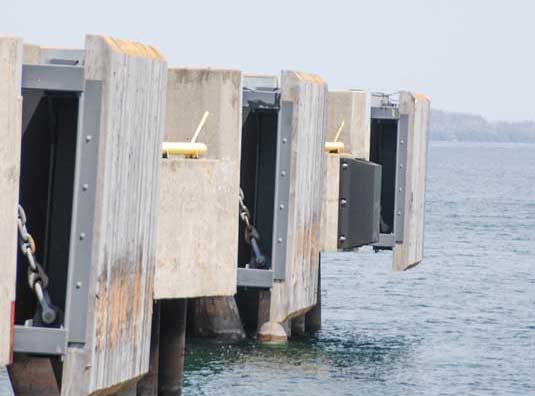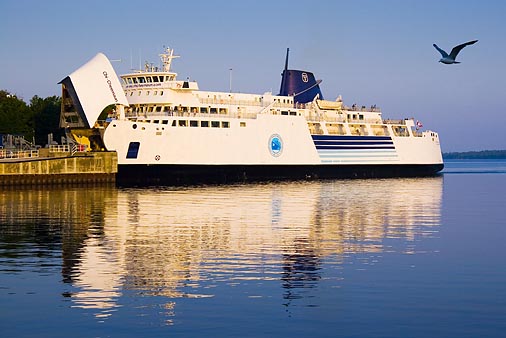No one is happy with the loss, so far, of two weeks of the Chi-Cheemaun’s 2013 sailing season (and the angst associated with the threat of more weeks that might have been lost while repairs are made) so it’s a major relief that the seasonal sailings will commence this week.
A sailing season that will begin this year, two weeks later than usual, is far from ideal but this experience, in which two senior levels of government have been involved (that also represent, as it happens, political parties with quite different philosophies) may well be an indication of what we have in store should the ferry service require additional external services that are far more complicated and expensive to accomplish than the relatively cheap fix ($293,000) the extension of docking fenders will cost.
Residents of Manitoulin and the Bruce Peninsula, tourist visitors and cottagers who consider the Chi-Cheemaun service important to their businesses or seasonal travel plans should view the current situation as something of a miner’s canary: a larger, more costly problem with the ferry service can only be viewed as something that will require a more prolonged, possibly rancorous, debate.
Staring us in the face, of course, is the real possibility that the channel leading from Georgian Bay into South Bay and the ferry’s South Baymouth dock will very likely require blasting in order to give the ship adequate draft to ensure safe passage into South Bay.
Owen Sound Transportation Company CEO Susan Schrempf clearly alluded to this possibility as part of her presentation to the Manitoulin Tourism Association late last September at that Island organization’s annual general meeting.
Apart from everything else, this will be a very big ticket item: the figure of $30 million has been suggested to accomplish this should Lake Huron’s water levels continue to drop to the point where a deeper channel needs to be blasted and dredged for the safe passage of the Chi-Cheemaun to her Manitoulin Island dock.
The cost of this activity is one thing; the federal and provincial permits and permissions to undertake such a major treatment to a part of the lake’s bottom are another when both provincial and federal environmental and also First Nations concerns and issues would have to be agreed to prior to such work commencing.
As previously stated, the docking fender issue and its comparatively low cost pales in comparison.
This having been noted and with the dock remediation set to begin, it only makes sense for the same organizations, groups and individuals that have been helpful in making the Chi-Cheemaun an issue (to the extent that the Ontario Minister of Northern Development and Mines ponied up the funds to get the job done) must now turn their attention to the real possibility of the need for blasting and dredging within the next two to three years.
There is no reason to believe anything other than this too will become a political issue, possibly even another standoff regarding “who pays?”.
With the docking issue on its way to resolution, and before this recent demonstration of energy and political will fades from memory, it makes sense that the same players come together in support of eventual dredging so that the engineering studies required to do the work are completed and are in hand together with the required permits from every level of government with an interest in this type of project as well as the determination of the cost of the work and commitments to cover this cost.
In this way, once (and if) the lake levels drop to the extent that blasting and dredging are required, the behind-the-scenes work would have been already completed and it would simply be a matter of tendering for the work so that it could be completed in a timely manner that won’t effect the Chi-Cheemaun’s sailing season.
If this sounds too simple, it shouldn’t be and we would be foolish if we do not extrapolate from this recent experience and apply what we’ve learned to a larger anticipated problem that will otherwise have the effect of shutting down the service on a much more long-term basis.





